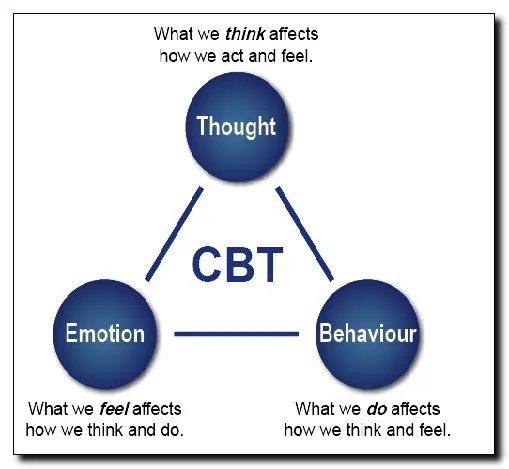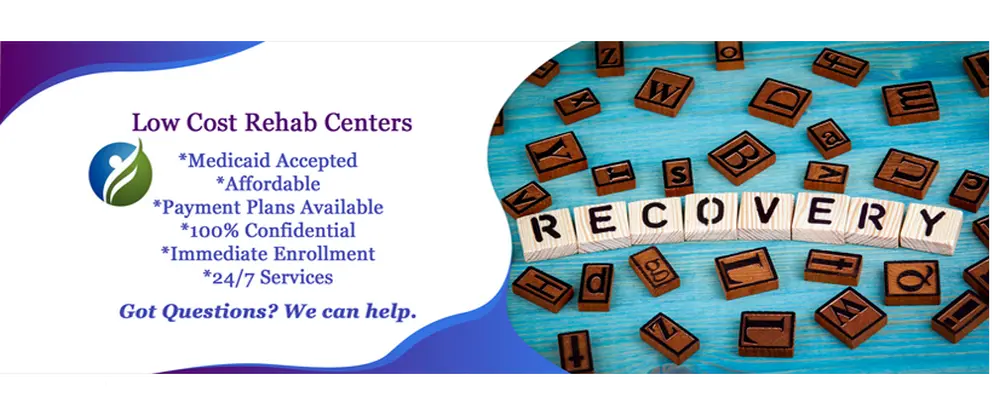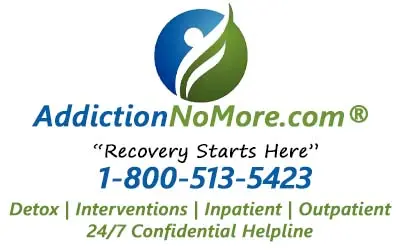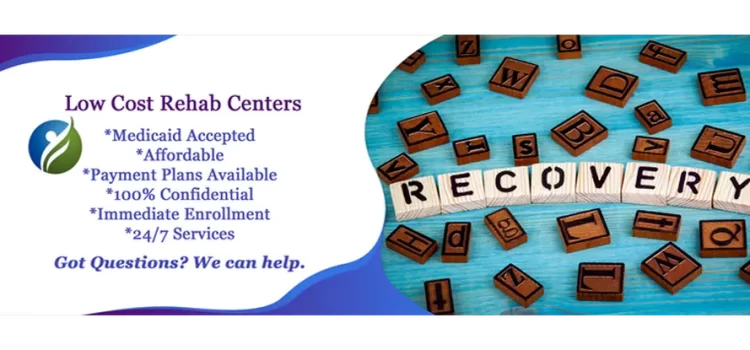Treatment Options
When you are looking for a low-cost treatment center, it is important to know that most drug rehabs, including the more expensive luxury or private programs, use the same basic types of treatment options. You do not need to sacrifice the quality of treatment just because you need a lower-cost program. The quality of the treatment that you receive should be equivalent to some of the higher-cost treatment centers. The only difference that we have found between higher-cost treatment centers is the amenities and activities. At some centers, a bit more one-on-one therapy is the only difference. We can help you find an affordable drug rehab center today. Give us a call, 24 hours a day, 7 days a week.1-800-513-5423

Therapy Models
The treatment model used in most drug rehabilitation centers is the 12-step program, which has been used for treatment for almost 50 years. The 12-step program is one of the most supported programs in the addiction world and has helped countless people achieve a life without the need for drugs and alcohol. Twelve-step programs are international mutual aid programs supporting recovery from substance addictions, behavioral addictions, and compulsions.Outpatient care for initial addiction treatment is sometimes required before some insurance companies will cover the next level of care which would be at an inpatient drug treatment center. Outpatient services and treatment options are usually used in conjunction with or as a stand-alone aftercare treatment program. When using outpatient for initial addiction treatment, the individual must have the drive, motivation, and support system in place for it to be effective. Many who have succeeded in outpatient treatment for addiction to drugs or alcohol have attributed their success to the drive and motivation that they had when entering the program.

CBT Therapy (Cognitive Behavioral Therapy)
No one can control what they think. It is a process that happens automatically without our cognitive knowledge. These thoughts can and do lead to choices that we are faced with every day. Learning to change and relate to how we make our decisions, how to make the right choices and the steps it takes to make these choices is the goal of early therapy using Cognitive Behavior Therapy. When faced with a choice, oftentimes, we make that choice without weighing all of the possible outcomes. The thought process is what needs to change, instead of being reactive to life in such a manner that your choices do not take into account the consequences of the actions and who or what part of your life is affected by this choice. Some mental and addiction problems are based on an illogical thought process rather than chemical imbalances or repressed trauma.DBT Therapy (Dialectical Behavior Therapy)
DBT Therapy or Dialectical Behavior Therapy is specifically designed to help individuals with self-harm and destructive behaviors. Many people who have these types of behaviors can meet or be close to meeting the criteria for another disorder called BPD or Borderline Personality Disorder. Many people with BPD have other underlying mental or chemical imbalances as well, Bipolar Disorder, Depression, Anxiety, and mood disorders that cannot be generally handled by medications alone. These problems can lead to emotional vulnerability if not handled the correct way through DBT, in conjunction with other therapies, medications, counseling, and a foundation, we can accomplish anything through individual therapy, skills groups, and coaching sessions utilizing DBT as a treatment model.MRT (Moral Reconation Therapy)

Detox and Treatment
Treatment at any drug treatment program starts usually with detox if it is needed to rid the body of drugs and or alcohol and help with withdrawal symptoms. Once the initial intake is done and all the case notes are taken into account, a program will be specifically designed to fit the needs and concerns of the primary certified drug and alcohol counselor. With a treatment plan in place, the work begins with self-building and the discovery phase of the program. This, coupled with the daily reflections, group therapy, one-on-one therapy, and activities keep the client busy and help them to achieve their goals every day. While working on ourselves, we often forget the damage that has been caused by our addiction. This damage can have some long-lasting consequences. Raising the responsibility level along with being accountable for our actions, is worked on, along with accompanying therapy to help speed up the process. Once we have seen the scope of the damage that one bad choice can make and what it can take to fix the problem that the bad choice caused, making better choices seems like the easier route to go.Aftercare Programs
Usually set up in the last week of treatment. This step in recovery is the most important step and needs to be in place once you get back home from a treatment center. When you get back to your life, it is very important to remember that you are in recovery and need support for the everyday problems that life throws in front of you. What most people do not realize is that it is easy to stay off of drugs or alcohol while in an inpatient treatment center. Once you get home, the temptations are there and the people who you used to party with are still there. This is why an aftercare support system needs to be in place, to help with the temptations to fall back into the same old patterns that brought us to this point.
How We Can Help
The fact is there is no actual cure for addiction to drugs or alcohol. It takes hard work and dedication to achieve a life without the need to self-medicate. Some programs will boast of having the magic pill or the “cure” for addiction but as in life, nothing comes that easy and these programs should be researched before you commit to treatment at their facilities. Give us a call, 24 hours a day, 7 days a week and we can help you locate an affordable drug rehab in your state, or anywhere in the United States today. It is sometimes beneficial for the client to go to treatment further away from home. Getting away from temptations and friends who may still be using is often better for many people. Clients who go to rehab in another state also have a harder time leaving treatment early as well. Depending on the situation, our counselors may suggest looking for substance abuse programs that are a plane flight away.Today can be the start of your new life. Start the healing today. Our certified counselors are here to help you find the most affordable treatment center in or outside of your area.
1-800-513-5423
Sources
Trauma Focused CBT
DBT Description
Recovery Support
Twelve Steps Wiki
Erik Epp – Content Author





